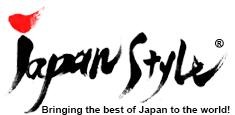 Regardless of nationality, there are many bibliophiles who always keep some books in their bag.
Regardless of nationality, there are many bibliophiles who always keep some books in their bag.
Shunei Tagawa, the chief abbot of Koufuku-ji Temple, is one of those book lovers. He can always be found with some books by the Japanese novelist, Shuhei Fujisawa.
When he was around forty, Tagawa became a fan of Shuhei. The first book he read was ‘Uminari’ (the Roaring of the sea).
According to Tagawa, the most attractive aspect of this author’s works is that very few heroes appear in the stories. Rather, the lives and feelings of everyday folks are quite carefully explored.
“Real heros who shaped their times appeared like being thrust out of ‘windings’ created by common folks and lower classes. Those ‘windings’ can even change the world. Shuhei Fujisawa doesn’t care about typical men of power at all, and his vision is always focused on the quieter struggles of the common people’s. That’s one of his stories’ attractions.” says Tagawa.
Tagawa’s favorite piece is a short story called “Hashiri Ame” (passing rain). During a rain shower, a thief waits under the eaves of a house, biding his time until the perfect moment comes for him to to sneak in. Many people pass before of him. At last the thief, moved by the sight of a destitute mother and a child, decides to abandon his shadowy lifestyle and take care of these two.
Here is Tagawa’s word, “In Buddhism, good, evil, and all in-between are intermixed. In our minds, good and evil are also entwined. The nucleus of our minds is neutral, so we can be both good and evil according to the situation. Shuhei Fujisawa describes such a reality.”
The NIKKEI 12/08/2011 by Shunei Tagawa (the chief abbot of Koufuku-ji Temple)







![[Photoblog] Kaidai-in in Spring](http://www.japanstyle.info/wp-content/uploads/2014/05/20140427_photoblog_kaidan-in-in-spring-65x65.jpg)

Recent Comments